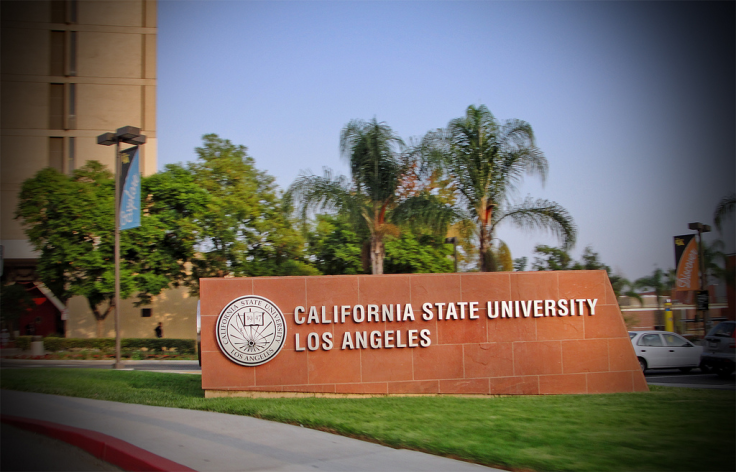On Wednesday night, California State University, Los Angeles (CSULA) witnessed a dramatic and intense protest as over 50 demonstrators occupied the student services building.
This bold action, which resulted in university President Berenecea Johnson Eanes and several administrators being barricaded inside, marked a significant escalation in campus activism. The incident not only highlighted the growing discontent among students but also posed serious questions about the university's ability to manage such situations effectively. The occupation, which ended early Thursday morning, left behind significant damage and underscored the broader context of ongoing protests and student movements at CSULA.

Occupation of the Student Services Building
On Wednesday night, over 50 protesters at California State University, Los Angeles (CSULA), occupied the student services building, creating a tense standoff that lasted for hours. The protesters barricaded multiple administrators, including university President Berenecea Johnson Eanes, inside the building. The demonstration, which drew attention from students, faculty, and local authorities, was part of a broader wave of campus activism. The protest's intensity and the significant administrative response highlighted the growing unrest among students and the challenges faced by university leadership in addressing their concerns.
As the hours passed, most administrators managed to find a way to exit the building. However, about a dozen, including President Eanes, chose to remain behind "to manage the situation," according to university spokesperson Erik Frost Hollins. Their decision to stay underscored the seriousness with which the administration viewed the protest and their commitment to finding a peaceful resolution. The occupation ended early Thursday morning when the protesters dispersed, leaving behind a trail of damage and raising questions about the future of student-administration relations at CSULA.
Significant Damage and Aftermath
In the aftermath of the protest, authorities declared the student services building a crime scene due to the extensive damage caused by the occupation. Spokesperson Erik Frost Hollins reported "significant damage" to the first four floors of the building, which were covered in graffiti and littered with broken furniture and equipment. The scale of the destruction highlighted the depth of the protesters' anger and the lengths they were willing to go to make their voices heard. This incident has prompted a critical evaluation of security measures and the university's approach to handling such demonstrations.
The university has not yet provided a detailed estimate of the repair costs, but the cleanup and restoration efforts are expected to be substantial. The damage has disrupted student services, forcing the administration to find alternative ways to provide essential support to students. This situation has further strained the relationship between the administration and the student body, with both sides grappling with the fallout from the night's events. The university's response to this incident will likely shape its policies and approach to student activism in the future.
Broader Context of Campus Activism
The occupation of the student services building at CSULA is part of a larger pattern of campus activism that has been gaining momentum across the country. Elsewhere on the CSULA campus, protesters have inhabited a pro-Palestinian encampment for over 40 days, underscoring the diverse and intersecting issues driving student activism. These protests reflect broader societal debates and the increasing willingness of students to take direct action to address perceived injustices.
At CSULA, the protest and the prolonged occupation of the pro-Palestinian encampment signal a campus community deeply engaged with global and local issues. The administration's challenge lies in addressing these concerns while maintaining order and ensuring the safety and well-being of all students. This delicate balance requires open communication, empathy, and a willingness to engage in meaningful dialogue with student activists.
The events at CSULA serve as a reminder of the powerful role that student activism can play in shaping university policies and priorities. As campuses across the country continue to witness similar movements, the lessons learned from CSULA's experience will be invaluable for other institutions facing their own challenges with student protests. Universities must find ways to support student expression while fostering an environment of mutual respect and understanding.
© 2025 University Herald, All rights reserved. Do not reproduce without permission.








